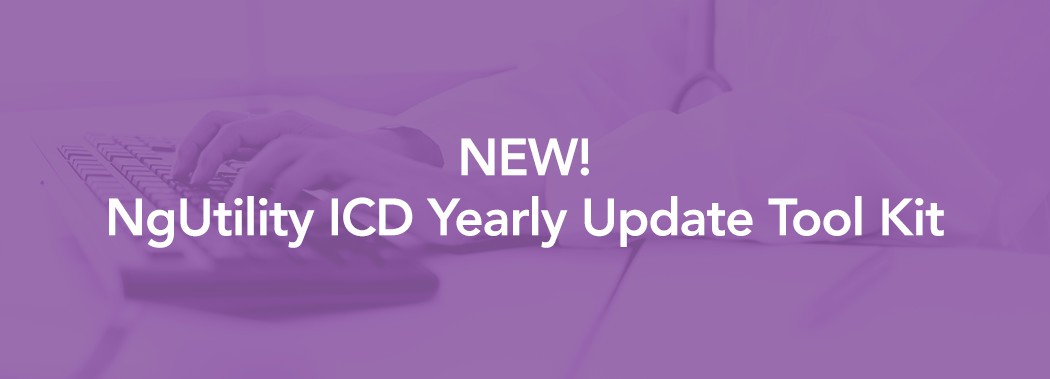NextGen Healthcare announces the availability of the NgUtility ICD Yearly Update Tool Kit. Each year, specific diagnosis codes are no longer valid for claims after a specific date. The invalid codes need to be removed from NextGen® KBM content and replaced with the new codes, when applicable, to ensure compliant documentation and billing of patient diagnoses. Traditionally, this has been a labor-intensive and time-consuming process.
New interface streamlines update process
The NgUtility ICD Yearly Update Tool Kit is a new interface designed to locate ICD-10 codes which have become invalid as part of the Center for Medicare & Medicaid Services (CMS) yearly code revisions. By utilizing this tool, much more of the process is automated while still preserving the option to manually implement mapping. The NgUtility ICD Yearly Update Tool Kit provides an efficient and effective tool, described by clients as easy-to-use and very helpful.
How to get started
The NgUtility ICD Yearly Update Tool Kit is delivered as a system template. The template offers a number of search tools to locate potential invalid ICD-10 codes in client databases. Tool kit searches can be executed as many times as is necessary to locate and correct invalid ICD-10 codes.
Please refer to the NgUtility ICD Yearly Update Tool Kit User Guide for NextGen KBM for complete information on how to use the NgUtility ICD Yearly Update Tool Kit. This guide is intended for clinical staff responsible for patient care and office staff responsible for certain practice-related business functions such as coding and billing.
Important to note
The NgUtility ICD Yearly Update Tool Kit requires the following prerequisites:
- You must be on NextGen® Ambulatory EHR 5.8 or higher and NextGen KBM 8.3 or higher.
- The current year ICD code file must be loaded in the File Maintenance Master File.
- The current year ICD codes must be loaded in the File Maintenance Diagnosis Code Library.
- The effective dates and expiration dates for updated ICD codes must be entered correctly.
- The current Clinical Data Loader (CDL) must be applied to the system.
This guide assumes a basic knowledge and skills for all of the following: Microsoft Windows® operating systems, Microsoft Office® applications, and all applicable NextGen® ambulatory products.
Results should be interpreted by a physician, billing expert, and/or certified coder. It also is recommended that only individuals with advanced Template Editor knowledge and experience make the corrections to the hard-coded ICD-10 codes in Template Editor. Please refer to NextGen Healthcare Success Community for the latest version of the Templates User Guide for NextGen Ambulatory EHR.

